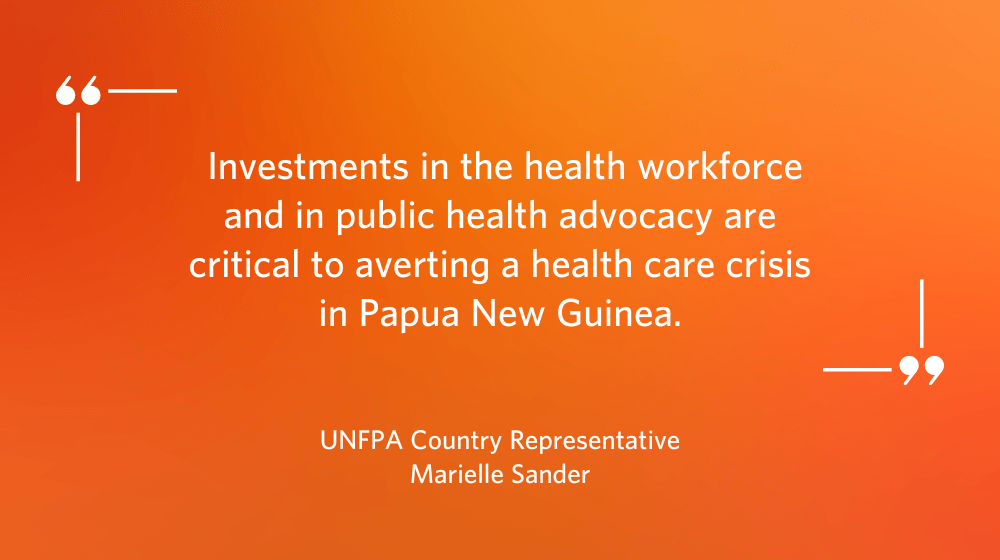As the Special Parliamentary Inquiry into Health Matters has shown, there are significant problems within the health system that are affecting the provision of quality health care, in both urban and rural areas. As the population grows, these problems will only be exacerbated without urgent intervention. Investments in the health workforce and in public health advocacy are critical to averting a health care crisis in Papua New Guinea.
Investing in Reproductive Health, Child Health, and Vaccination
These investments not only deliver positive outcomes for the health and wellbeing of the population but significant economic gains. UNFPA, UNICEF, and UNAIDS estimate that an additional $210 million USD (740 million PGK) investment in reproductive health and vaccination over the next 7 years can return $2.3 billion USD (8.11 billion PGK) in economic benefits by 2050. These projections have been developed by UNFPA in partnership with the Burnet Institute.
For every $19.09 invested in family planning, the country will see a $356.78 return. Improving access to family planning, through the supply of family planning commodities, training health workers to deliver these services, and educating the public on family planning, reduces unintended pregnancy and subsequently reduces maternal and neonatal deaths. In addition, promoting condom use also reduces the incidence of STIs and HIV.
Accelerating Training in Midwifery
Midwives can provide 87% of sexual and reproductive health services. This includes services for men as well as women. Currently, midwifery is offered as an 18-month specialisation for qualified nurses. This means that reaching the number of midwives required for the population will see nurses leave the profession for 18 months to complete their qualification. With a direct entry pathway for school leavers into a Bachelor of Midwifery, the number of graduates can increase from 45 to 180 per year.
UNFPA is working in partnership with the National Department of Health to strengthen supply chain management and equip provincial and district level facilities with reproductive health equipment. We facilitate emergency obstetric and newborn care training for practicing midwives in addition to procuring essential medicines. These interventions have made a measurable impact for sexual and reproductive health services, but significant and sustained investment is needed to ensure supply can meet the growing demand. These investments not only deliver improved health outcomes, but deliver strong economic returns.


